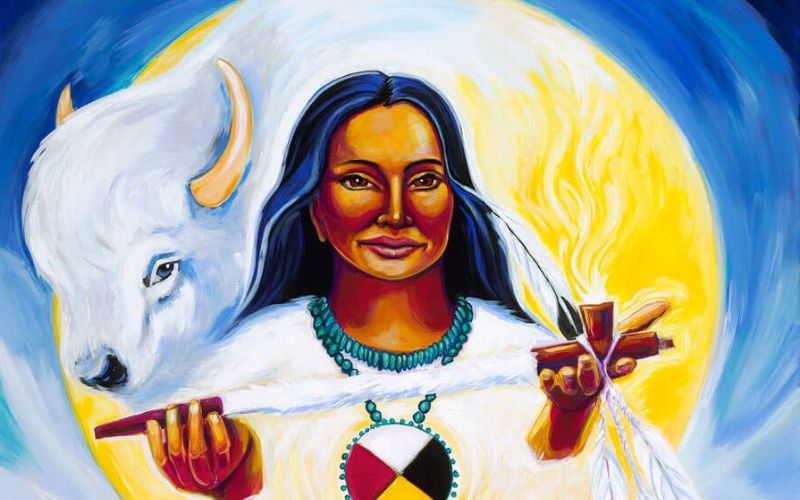
- Details
- By Kaili Berg
Based on the Rosebud Indian Reservation in Reservation, the White Buffalo Calf Women’s Society is one of the oldest domestic violence shelters on any reservation in the United States. For 45 years, the society has served victims of domestic violence in the Lakota community.
The White Buffalo Calf Women’s Society was initially founded in 1977 as a non-profit organization, and in 1980 became the first women’s shelter on an Indian Reservation within the United States. It was founded by Lakota women to serve relatives whose lives have been impacted by violence.
“They started meeting at home to create support for themselves and their family members,” LeToy Lunderman (Oglala Lakota), Executive Director of White Buffalo Calf Women’s Society, told Native News Online. “Many of the members were from the Antelope community, one of the larger communities located on the Rosebud Reservation.”
Nearly 85 percent of Indigenous women experience violence in their lifetime, according to the U.S Department of Justice. A lack of jobs and housing leaves many financially dependent on their abuser. Despite experiencing disproportionate rates of violence, Indigenous women are less likely to have access to victim services.
The prevalence of domestic violence has roots in generational trauma from the forced removal of Native children from their families to government-operated boarding schools, where many suffered violence, sexual abuse and neglect.
“Because of the effects of things like boarding schools add a contributing factor to the trauma and the violence that is in our communities today,” Lunderman said. “I think it is important for us as an organization to be on the front lines there.”
The shelter is named after the story of the White Buffalo Calf Woman, a legend of the Lakota people who gave them their sacred rights, ceremonies, spirituality, and guidance.
“The name carries a lot of responsibility,” Lunderman said. “We believe that the White Buffalo Calf Woman brought us all of our different ceremonies and our sacred pipe along with teachings on how women are sacred. We make sure that we integrate our culture into everything that we do.”
The White Buffalo Calf Women’s Society offers safe shelter for those experiencing domestic abuse on the Rosebud Reservation. Over time, they have evolved into offering other services for victims, including sexual assault, stalking, dating violence, and human trafficking, while also offering resources and support for child abuse and elderly abuse.
“We try to connect our relatives to as many different resources based on their needs to help get them out of the situation they are in,” Lunderman said.
Along with responding to the immediate crisis for individuals through shelter and resources, the White Buffalo Calf Women’s Society also provides a culturally centered approach to healing.
“We can provide medicines, sage, sweetgrass and different things that they may need on the healing portion of things as well,” Lunderman said. “We also offer resources for them to participate in ceremonies like sun dance, sweat lodge, or naming ceremonies. There's so many different ways that our culture can be utilized for healing.”
Many involved in domestic violence advocacy at White Buffalo Calf Women’s Society are survivors themselves and rely on their experiences to help others. Working and living on the reservation allows them to build trust and provide more insight into issues facing the community.
“What makes us so amazing and may be hard to understand for some is that 100 percent of my staff have been victimized in some way throughout their lifetime,” Lunderman said. “It has become their calling to help.”
Anyone experiencing domestic violence can call the National Domestic Violence Hotline at 800-799-7233 or text “START” to 88788.
Help us ensure that the celebration of Native Heritage never stops by donating here.
More Stories Like This
National Indian Health Board's Strategic Plan Listening Tour Underway‘You Are Never Alone’ | How One Tribe Is Fighting Youth Suicide With Culture and Crisis Response
‘Our Culture is Prevention’
This National Cancer Prevention Month, Reduce Your Risk
New Mexico Will Investigate Forced Sterilization of Native American Women


